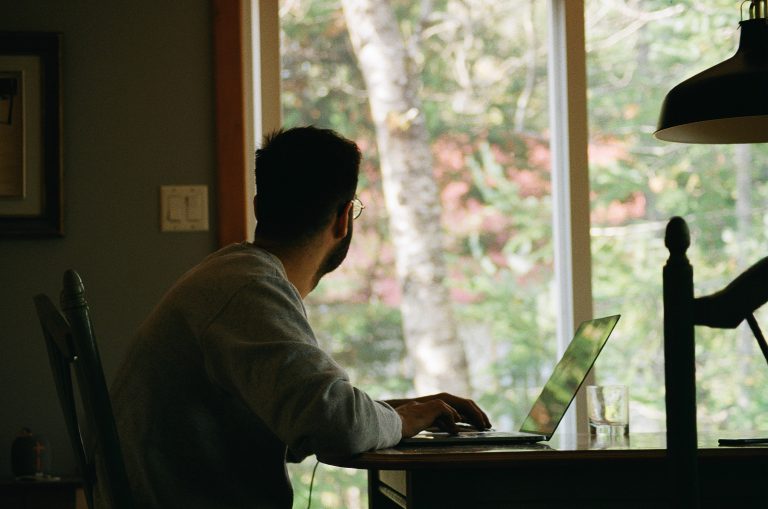3 Research-Based Questions for Finding Hope in Uncertainty

I open my phone in the morning and look at the news headlines to see what’s going on in the world. A jump in new cases of the virus, more deaths, schools closed, flights cancelled, borders shutting down, businesses struggling… the list goes on. This can all be overwhelming and it’s difficult not to feel afraid, anxious and worried. I know it’s good to be prepared and take precautions for myself and my family, but how worried, anxious, or afraid should I be? And if I am, what should I do about it?
What I’ve realised is that I’m not consciously worried, but I’m definitely a little more on edge. I feel more easily frustrated, snap at my wife or kids for no reason, and so on. Something is going on inside me, even if I pretend this situation doesn’t faze me at all.
Despite the negatives, another word has sprung up: hope. Anxiety, fear and worry are related to negative expectations of the future, but hope is the opposite. It doesn’t necessarily “promise” that all goes well or that nothing bad will happen, instead it’s about finding something to hold on to, even when times are tough and uncertain.
Clinging on to my sliver of hope, I read up on the topic. I came across an interesting article on a “framework for hope”. The research was done on stroke patients in rehabilitation, but the framework is applicable to any situation involving uncertainty and change. In their conclusion the researchers gave the following three guiding questions to think about:
1. What do I need to accept and what do I need to defy?
Hope doesn’t mean putting your head in the sand like an ostrich, denying what’s going on. You do, however, need to come to terms with the fact that things may not be the same as they used to be. After getting over the initial shock and taking a more balanced look at the situation, you may start to see things differently. You may realise that things could be a lot worse, and that there’s actually quite a lot to be thankful for.
The forced change may also help re-evaluate some areas of your life and make positive changes you may not have done otherwise. Just think about all the inspirational stories of people who have gone through significant challenges in their life. None of them would have chosen, or wanted, these to come their way. Having gone through them, however, they may look back and realise they would not be where they are today if it wasn’t for those painful experiences.
2. How can I maintain my identity – who I am?
A second area highlighted in the research was identity. Change and uncertainty force us to reflect on who we are and what our identity is based on. You may not be able to do things exactly the way you’ve been used to, but does that change who you are? We all have different roles, beliefs, and characteristics and these are central to what who we are. The more superficially you base your identity on the things that you do, the more vulnerable you identity is to changes in life. Anchoring your identity in deeper personal values and characteristics can provide stability and hope – even during change and uncertainty. Maybe this is a good opportunity to stop and reflect on what you value in life and what defines who you are?
3. How can I promote coping in my situation?
Finally, the article called for a focus on coping, rather than curing. You may not be able to change the circumstances, but can you find ways of coping with the changes? The article highlighted the importance of holding on to meaningful activities. As with identity, it’s helpful to look deeper into why some activities are important or meaningful. Rather than focusing purely on what you are used to doing, think about why you do those activities and what you get out of them? This can help you find alternative and creative ways to achieve the same outcome even in changed circumstances.
In a recent call with a coaching client who had gone through some significant changes and challenges in his life, we reflected on the word “adapt”. Throughout our lives, we go through various changes which force us to adapt. Some of these come suddenly, others more gradually. Adaptation focuses on gradual change, not a complete turnaround in life, which can in itself be a source of hope.
Choose hope and focus on what matters the most
So if you find yourself worried, anxious, or perhaps just frustrated like I did, take some time to reflect on where that may be coming from. Acknowledge the fact that things may look a little different for some time, but different isn’t necessarily bad. Rather than forcefully trying to carry on with business as usual, it may be better to choose hope. First, accept the situation and reflect on how some of the changes forced upon us may actually end up being positive. Second, think about your identity and priorities in life and focus on what matters most. And finally, focus on coping and adapting through activities that give life meaning.
Hope, in the end, is the acceptance of what is, and the cautious aspiration for something even better. And that is a good recipe in these times of uncertainty.
We bring the content to where you are
Over the coming weeks we share articles, free resources and concrete recommendations on taking care of yourself, your family and co-workers. Subscribe to our mailing list and you will be the first to hear about our free webinars, latest updates, blog posts, and much more. We also offer a vast variety of webinars for organisations that address the challenges of office workers contained to their home.



